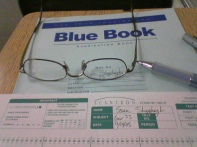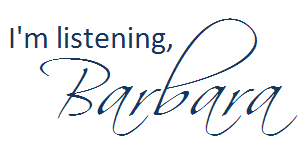How to Study for Final Exams
November 16, 2009
 Final exams are approaching on college campuses around the world. Finals can be stressful, even for the most prepared students. Here are some tips to help you succeed:
Final exams are approaching on college campuses around the world. Finals can be stressful, even for the most prepared students. Here are some tips to help you succeed:
Preparing for the Final
- Find out what your entire final exam schedule is so that you’ll know how many finals you will have on each day.
- Prepare a written schedule for yourself indicating when you will study for each test. Leave some time in your schedule for exercise and relaxation, too.
- If the professor offers a study guide, use it.
- If the professor offers a review session for the exam, go to it.
- Know if the final is comprehensive (covering everything since the beginning of the semester or quarter).
- Find out what kind of exam it will be. You’d study differently for a multiple-choice (Scantron) final than an essay (blue book) one.
- If the final will be taken online, find out if you have to go to a specific computer lab on campus at a specific time, or if you’ll be allowed to take the final on your own computer. Also find out how many chances you will have to take the final. Assume it’s just one chance unless you hear differently from the professor.
- If you have your previous exams available, scour the exams for things that you think will be on the final. Flag your notes by highlighting or using Post-It notes.
- Don’t pull an all-nighter. (Though some people are successful with studying all night and then taking a test with no sleep, I wouldn’t recommend you try it for the first time on a final exam.)
- Calculate your grades in the class. Determine what score you will need to get the grade you’re hoping for in the class. You may discover that you can’t possibly get an A, no matter how well you do on the final, but to get a B, you only need to get a few questions right.
- If you’re an auditory learner, record yourself reading your notes aloud, then play the recording back several times. (You can use the free online service Utterli for this; simply register with Utterli and then call your assigned phone number with your cell phone to start the recording.)
- If the exam is an open-book exam, this does not mean that you don’t have to study at all. In fact, one of the most challenging exams I ever took as an undergrad was an open-book essay exam.
- Consider creating a detailed Final Exam Battle Plan.
On the Day of the Final
- Eat a meal and drink water.
- Don’t overdo it with the caffeine.
- Know what to bring with you to the final. Do you need a blue book? A Scantron? (And if you need a Scantron, which kind do you need?) A pencil? A pen?
- Are food and drinks allowed in the classroom where your final will be? Sometimes, the rules are different for exam days than other days.
- Even if you don’t usually wear a watch, take one with you to the final. It’s unlikely you will be able to look at your cell phone during the final.
During the Final
- For a paper-based exam, read through the entire final exam before you start answering any questions at all. This way, you will know what you’re facing.
- If the final is an online exam, find out if you can revisit questions, or if after you click past a question you cannot go back to it again.
- If you’re using a Scantron and you skip a question to finish later, make sure you’re answering your questions next to the correct answers. (When I took my GRE to get into grad school, I skipped a question on the first page of the booklet, but never skipped a number on the Scantron. When I realized it, I only had 10 minutes to go back and put the answers with the correct questions. Talk about stress!)
- Keep a close eye on the time you have allotted.
- Some students benefit from answering the most difficult questions first, while others do better completing all the easier ones. Do what works for you.
After the Final
- Do not share with other students what was on the final exam. In most universities, this is a violation of the honor code.
Now it’s your turn: What final exam tips do you have to share? Please let us know through your comments below.
Photo Credit: http://flickr.com/photos/shaghaghi/73645535/


My suggestion is if the class involves memorizing information about short words, phrases, people, or dates, such as in a political science or language class, that you make flashcards. Make them on paper and hand write on them. Memorize seven at a time, then combine small stacks and shuffle like a deck of cards.
This can even work in a relatively crammed schedule, such as reviewing an entire semester’s cards over a two-week period. The action of making the flashcards by hand will help you memorize almost as much as reviewing them will.
My biggest ‘tip’ can be summed up in one word: solitude.
I’m a fairly extroverted guy whose devious mind enjoys being distracted, so I spent hours around finals week in the most boring and obscure places I could cloister myself. The more boring, the better because then my studies were all the more interesting.
Good suggestions.
Biggest is to really begin in earnest studying for the exam WELL BEFORE the exam – a week or more.
Take your questions into the professor’s office hours to get clarifications on materials – but don’t ask “Will it be on the exam?” Show your professor you care because you care. Chances are the professor will give you extra insight on how to study & what to study (as long as you don’t come straight out & ask “What do we need to know?” because that doesn’t show true interest).
Don’t pull an all-nighter. If you were studying along the entire time there is no need for this. Plus you’ll end up doing worse on the exam (academic research actually shows that students with less sleep before an exam do worse than students who got a good night’s sleep).
A Navy advancement exam trick I learned for old-fashioned scantron tests is to take a scrap paper (in our case, it was our Navy ID card) & cover up all the answers when you read the question. Try to come up with an answer yourself, then slowly reveal the multiple choices one at a time. It helps you from getting overwhelmed & possibly confused because the choices may all seem viable at first. They key take-away is that it takes the stress out of it, causes you to slow down & puts you back in control!
Good luck on exams everyone!
Kaye — Great tips! I never thought of the “cover up the possible answers” approach. Sounds like it worked well for you.
It’s a tried and true method: create a study group, collect all the pertinent info that will be covered on the final exam into one document, and have the group review the document. Get together and quiz each other, game-show style. Miss a question, you’re out. Start again every 30 minutes. Repeat until each member knows the info cold. Take turns being the quizmaster, as that really helps cover all the material.
Don’t cram the night before- Honestly, If you don’t know it the night before the exam, you aren’t going to do very well on the exam! Start study as soon as you can! Perhaps start putting your study materials together over free time during thanksgiving break!
I read on another blog recently a really good tip, and it was don’t spend too much time with people/friends who will stress you out. Being around them and hearing them stress out will only stress you out.